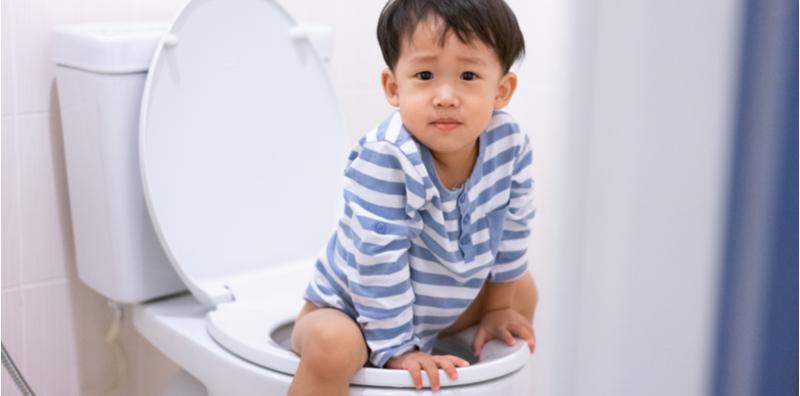
Children, like adults, are not strangers to the effects of constipation. Consider these home remedies to help them feel more comfortable.
Is my child constipated?
It can be difficult for parents to understand their child's bowel movements. Young children are unable to tell you if they’re having problems pooping.
Constipation is common in childhood, particularly when children are being potty trained at around 14 months to 3 years old. For most children, constipation means passing hard stools, with difficulty, less often than normal.
Regular soiling (often mistaken for runny diarrhoea) may indicate that a child has bad constipation, causing a blockage of the lower part of the gut which may need medical attention.
Other signs your child may have constipation is:
-
hard or pellet-like stools
-
abnormal eating habits, or won’t eat
-
constipation colic
-
a swollen belly
-
bowel movements that appear painful or difficult to pass
-
bowel movements that are infrequent or less frequent than usual
Why is my child constipated?
The cause of constipation in young children may not always be clear. Constipation in children can happen due to change in diet or milk formula Sometimes it may also be due to having a delicate stomach.
Other common reasons constipation can occur include:
-
a tear in the skin next to the anus (anal fissure) may be caused by doing a hard poo. This may hurt to go to the toilet
-
Switching to growing up milk formula too quickly
-
Excessive fluid loss due to vomiting or fever
-
Lack of physical movement or activity

How can I prevent my child from having constipation?
There are a variety of things that can cause constipation in children. Here are a few ways of to help your child’s bowel movements:
A high-fibre diet with plenty of fluids - Giving your child their recommended daily fluid intake is important. Insoluble fibre helps speed up the transit of food in the digestive tract and helps prevent constipation. Foods that are good sources of soluble fibre include apples, bananas, barley, oats, and beans.
Stool softeners - Over-the-counter fibre supplements or stool softeners may help your child, especially if your child doesn't get a lot of fibre in their diet.
Movement and exercise - Letting your child get out to play for at least 30 to 60 minutes a day is important. Moving the body keeps the bowels moving, too.
Tips to help ease your child’s constipation
There are several home remedies for constipation you can try in the comfort of your own home to give your child constipation relief. Here’s what they look like:

Physical activity
Physical activity or movement can help relieve constipation in your child. Encourage and allow your child to be physically active by moving, running and engaging in supervised physical exploration of their surroundings. Movement helps a child with their intestinal tract and allows food to digest faster.
Dietary changes
If your child is on formula milk, try a different growing up milk formula. try a different brand of formula. Changing your child’s growing up milk formulas which may contain different mineral composition or dietary probiotics can help improve digestion. Opt for dietary formulations that contain partially hydrolyzed proteins (PHP) which are smaller in size helps with easier digestion for your child’s sensitive stomach.
Warm bath
A warm bath can help your child’s muscles relax and release poop. Although there is not much research on it, heat may help relax your child’s intestinal muscles and ease stomach discomfort. This can also help with bowel movements and provide fast constipation relief.8
Water and or fruit juice
Giving your child an adequate amount of water is an essential part of digestion once he/she passes the one year mark. Fruit juices are also helpful but it may be helpful to water down the juice a little, due to its high sugar content. Aim for 1 part juice to 10 parts water.
Rectal temperature
Taking a rectal temperature may stimulate your child to pass stool and relieve constipation. Check your child’s temperature using a digital, rectal thermometer. Put a small amount of petroleum jelly on its tip before inserting into the rectum.

When to seek help?
Very rarely, constipation can be a sign of an underlying health problem. However, you will need an assessment by a doctor to eliminate any possible underlying conditions.
Take your child to a doctor immediately if his/her poop is dry and crumbly or like pellets, or they seem to have pain and discomfort when doing a poop
-
he/she is constipated and they are gaining weight slowly
-
he/she has blood in their poop
Every child is different, as is every adult. Reach out to your doctor for further insight if your child’s eating habits are of concern.
Join the Enfamama A+ Club today and learn tips to improve your child’s constipation issues with exclusive club content, plus other amazing club benefits!

